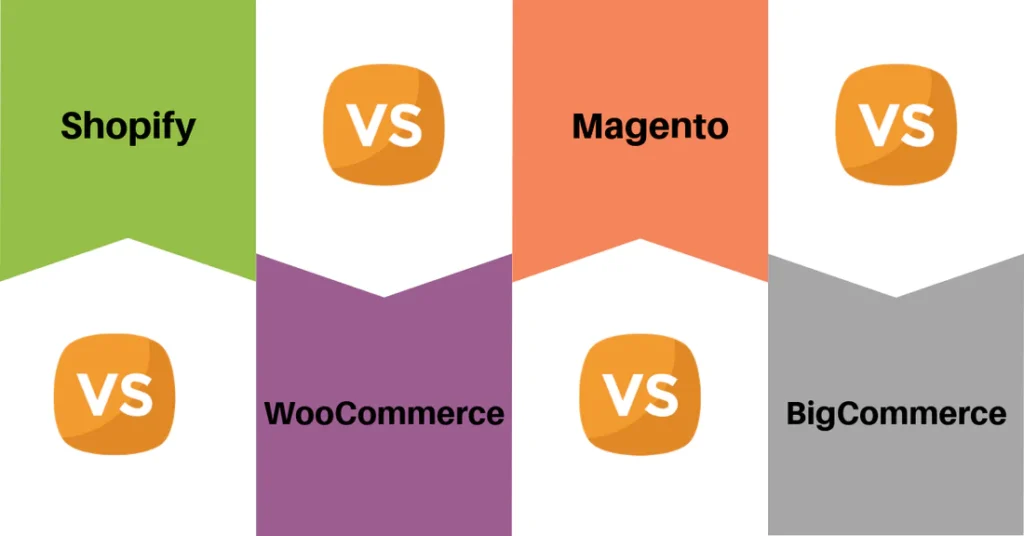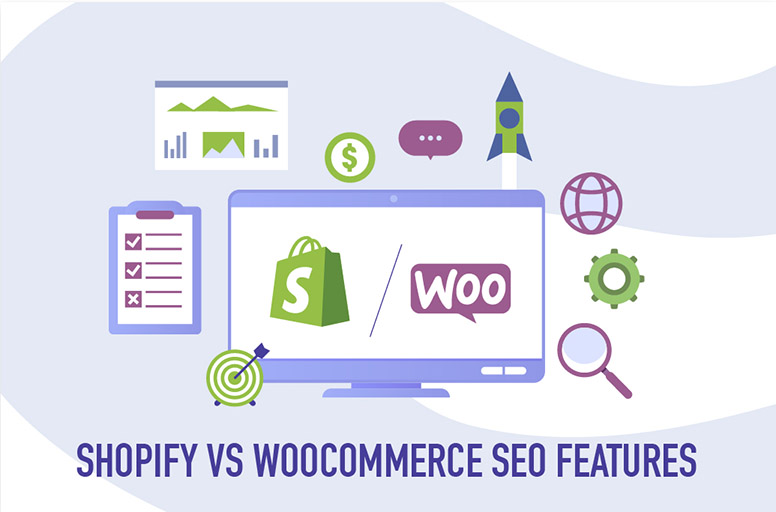SEO Comparison
In the vast landscape of e-commerce platforms, selecting the right one for your online store is a critical decision that directly impacts your business’s success. Among the myriad of options available, Shopify stands out as a popular choice. In this blog post, we’ll embark on a journey of exploration, comparing Shopify’s SEO Comparison capabilities with those of other prominent e-commerce platforms. Understanding the strengths and weaknesses of each platform is essential for making an informed decision and optimizing your online store for maximum visibility.

The Rise of Shopify
Shopify has gained widespread acclaim for its user-friendly interface, extensive app ecosystem, and seamless integration capabilities. However, when it comes to SEO, how does Shopify fare against its competitors?
Shopify’s SEO Features:
- Built-In SEO Tools:
- Shopify comes equipped with a range of built-in SEO features, including customizable title tags, meta descriptions, and URLs, allowing users to optimize their product pages for search engines.
- Mobile Optimization:
- In an era where mobile-friendliness is crucial for SEO, Shopify shines with responsive themes that ensure a seamless experience across various devices, contributing to higher search engine rankings.
- Fast Loading Speed:
- Page speed is a significant ranking factor, and Shopify understands the importance of this. With a content delivery network (CDN) in place, Shopify stores tend to load quickly, positively impacting both user experience and SEO.
- User-Friendly URLs:
- Shopify generates clean and user-friendly URLs automatically. This not only enhances the user experience but also contributes to better search engine visibility.
- App Integration for Advanced SEO:
- The Shopify App Store offers a plethora of SEO-focused apps that enable users to enhance their store’s SEO capabilities. From advanced analytics to automated meta tag generation, these apps provide additional tools for SEO optimization.

Shopify vs. Other E-commerce Platforms
Now, let’s delve into a comparative analysis, pitting Shopify against other major e-commerce platforms in terms of SEO.
1. Shopify vs. WooCommerce:
Shopify:
- Pros: Streamlined setup, no need for separate hosting, and a wide range of built-in features.
- Cons: Limited customization compared to WooCommerce, and transaction fees on each sale unless using Shopify Payments.
WooCommerce:
- Pros: Unparalleled flexibility and customization options, extensive plugin support, and no transaction fees (except for payment gateway fees).
- Cons: Requires separate hosting, potentially steeper learning curve, and the responsibility of managing updates and security.
SEO Comparison:
- Shopify’s built-in SEO features are user-friendly, but WooCommerce offers more flexibility for advanced SEO strategies. It depends on your preference for simplicity versus customization.
2. Shopify vs. Magento:
Shopify:
- Pros: Easy to set up and use, fully hosted, and excellent customer support.
- Cons: Transaction fees for third-party payment gateways, and limited customization compared to Magento.
Magento:
- Pros: Unmatched customization capabilities, open-source nature for complete control, and scalable for large enterprises.
- Cons: Steeper learning curve, requires dedicated hosting, and may be overkill for small to medium-sized businesses.
SEO Comparison:
- Magento offers unparalleled customization for SEO strategies, but Shopify provides a more straightforward approach for users who prioritize ease of use.
3. Shopify vs. BigCommerce:
Shopify:
- Pros: User-friendly, fully hosted, and a vast app ecosystem.
- Cons: Transaction fees for third-party payment gateways, and customization is somewhat limited.
BigCommerce:
- Pros: Feature-rich, scalable, and no transaction fees on third-party payment gateways.
- Cons: Slightly steeper learning curve, and customization options may not be as extensive as some other platforms.
SEO Comparison:
- Both platforms offer robust SEO features, but Shopify’s user-friendly interface may be more appealing to those looking for a quick setup, while BigCommerce caters to businesses that require scalability and advanced features.
Conclusion
Choosing the right e-commerce platform involves weighing various factors, and SEO capabilities are undoubtedly a crucial consideration. While each platform has its strengths, Shopify remains a solid choice for users who prioritize simplicity, ease of use, and a streamlined setup process.
Ultimately, the best e-commerce platform for you depends on your business’s specific needs, your level of technical expertise, and your long-term goals. Whether you opt for Shopify, WooCommerce, Magento, BigCommerce, or another platform entirely, dedicating time and effort to SEO optimization will be essential for achieving online success. Keep abreast of the latest SEO trends, regularly update your content, and leverage the unique features of your chosen platform to create a thriving online store.


